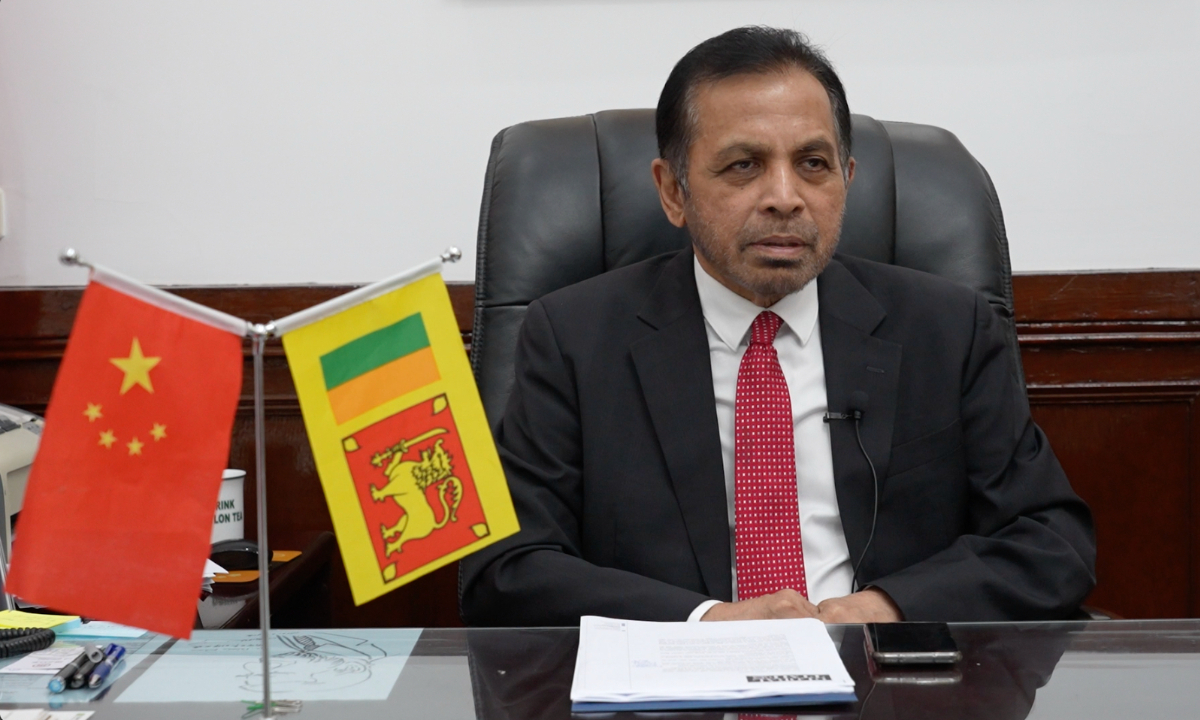

Colombo : Sri Lanka has not reached any initial agreement with the IMF on debt relief, and its largest creditors -the Asian Development Bank (ADB) and the World Bank – are urged to come up with a package that would speed up its debt restructuring process, Sri Lanka’s Ambassador to China Palitha Kohona told the Global Times in an exclusive interview on Friday, while also calling for more assistance from partners after the debt-ridden country claimed bankruptcy and imposed a state of emergency amid escalating protests and persisting shortage of daily necessities.
“The IMF visited Sri Lanka at the end of last month, and judging by report we received the official discussions were very satisfactory. We have appointed a team of legal advisors in London, and team of experts who understand debt restructuring from the West,” Kohona said. But he noted that discussions with the IMF are only at a preliminary stage, and once the new government is installed, there will be new arrangement for the next meeting with the IMF.
Kohona said it is hoped that terms and conditions attached to the IMF package will not be “onerous.”
“It’s inevitable whenever the IMF comes along we will have to tighten our belt, but in some cases it’s difficult because the belt is already on the last notch. We’re worried that the IMF may insist that we curtail our state-fund health care system. The education system which is free from grade one to university level might be another area the IMF recommends to cut. These may add to the unrest,” Kohona explained.
Sri Lanka’s largest creditors are international financial organizations like the World Bank and the ADB, and a substantial amount is also owed to other institutional investors from the West, for example the Wall Street. While calling on those organizations to take a bigger role, Kohona also hopes more bilateral partners will provide more assistance to help the country overcome its difficulties.
China and Japan each held about 10 percent of Sri Lankan debt. Kohona disclosed that about $1 billion, out of Sri Lanka’s $7 billion foreign debt obligations for this year, is due to China.
China’s Foreign Ministry spokesperson Wang Wenbin said at a press briefing on Friday that Chinese financial institutions have actively approached and negotiated with Sri Lanka after the country stopped debt repayment, expressing willingness to properly settle matured debts owed to China and help it overcome difficulties.
“China is ready to work with relevant countries and international financial institutions to continue to play a positive role in supporting Sri Lanka’s response to current difficulties and efforts to ease debt burden and realize sustainable development,” Wang said, adding that as a friend and neighbor, China has been providing assistance for its socioeconomic development to the best of our capacity.
Recently, China has announced a total of 500 million yuan ($74 million) emergency humanitarian aid to Sri Lanka. On Thursday, the second batch of emergency humanitarian grain aid – 1,000 tons of rice – from China was handed over to Sri Lanka.
There have been large-scale protests about the government because of the severe material and energy shortages that Sri Lanka is facing, Kohona noted. Sri Lanka faces a gap in cooking oilfertilizer, medicine, and even food stocks, which poses a huge challenge to Sri Lankans’ basic household cooking, transportation, medical needs, and preparation for the upcoming cultivation season.
On Thursday, President Gotabaya Rajapaksa officially resigned after landing in Singapore, and Prime Minister Ranil Wickremesinghe was appointed as acting president. Wickremesinghe declared a state of emergency across the country, BBC reported.
Kohona noted there are still protests in Sri Lanka against Wickremesinghe, and he is not clear whether the acting president will continue to hold this office for much longer. “This is very unsatisfactory, because the leadership of the country suddenly comes into question. So we are hoping that the constitutional provisions will be followed, and elections have to be held within a specified period to elect a new president,” he said.
Sri Lanka’s parliament will vote on a new president on July 20, according to the speaker of the Sri Lankan Parliament.
Kohona said he is confident that “whatever government in power will maintain excellent relations with China.”
“China is the major trading partner and investor of Sri Lanka, we have a strategic partnership between the two countries, whoever takes over the government after an election will maintain the confidence of the Chinese government as well as the goodwill of the Chinese people,” he noted.
In recent years, Chinese-invested projects under the Belt and Road Initiative (BRI) such as the Hambantota Port have largely improved local people’s livelihood and propelled the country’s growth.
On Thursday, the Chinese Embassy in Sri Lanka held a video conference with Chinese firms in Sri Lanka, guiding them on how to strengthen security work and cope with demonstration and safety events. Kohona said there has been no threat to Chinese projects or Chinese personnel in Sri Lanka.
“BRI investments are critical in Sri Lankan economy after the situation stabilizes. It not only brought foreign exchange, but also generated employments,” he said, adding that the embassy is encouraging a number of Chinese renewable energy companies to establish projects in Sri Lanka.


Comment